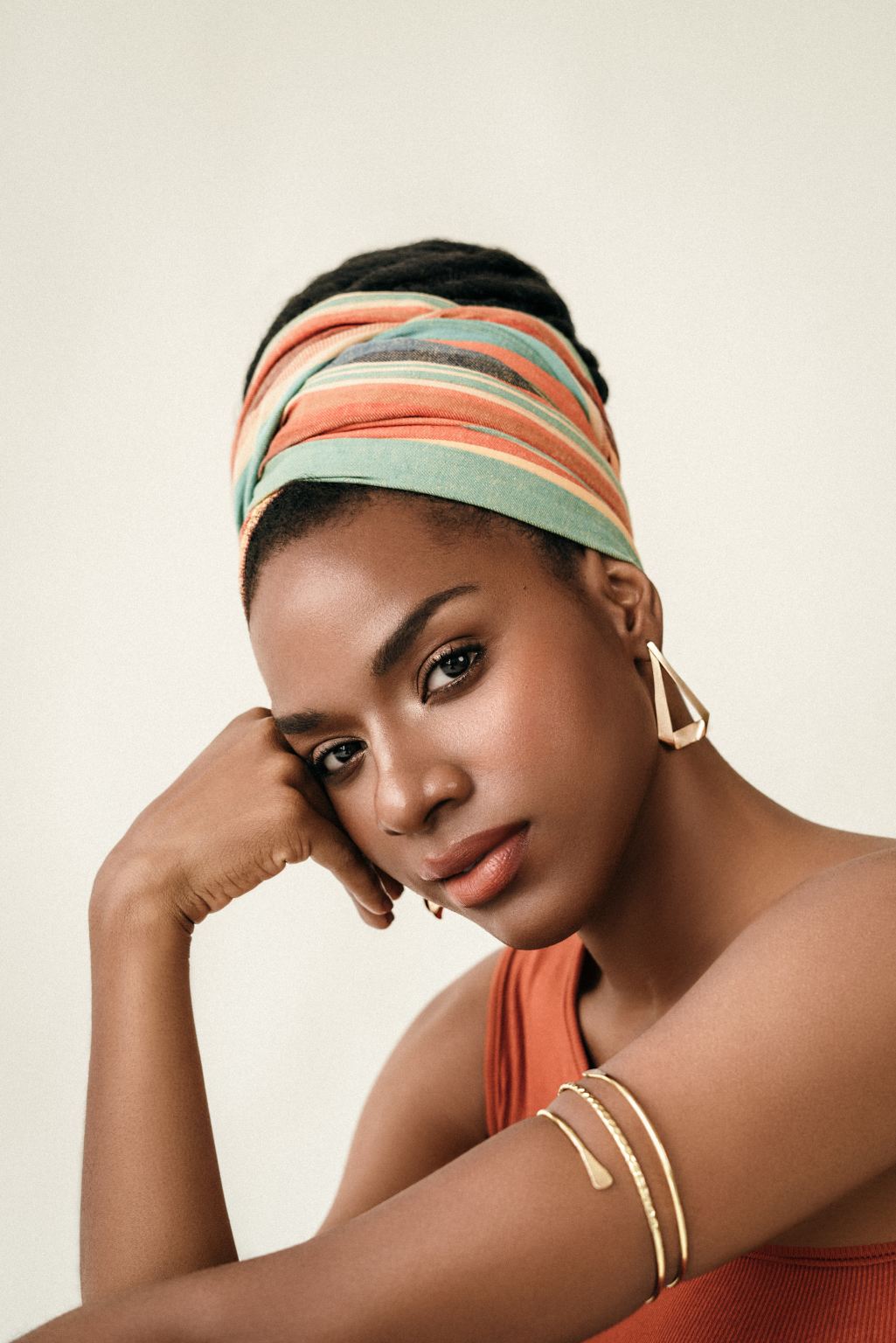“Everything has a purpose,” says Aisha Badru, the Nigerian American, sometimes earthy, sometimes ethereal singer-songwriter. “I was meant to be here, doing this. And it’s just part of my purpose to experience certain levels of trauma that are very universal, go through every process of healing, and somehow put it together so I can help guide someone else.” Tellingly, she’s titled her latest project, which explores the intersection between romantic entanglements and self-care, Learning to Love Again, out June 2 via Nettwerk.
The gossamer folk-pop “Lazy River” sits at the heart of Learning to Love Again. A culmination of Badru’s personal and musical awakenings, it’s a contemplation about how, she says, “when you lose someone in love, the wounds are not really about the relationship, they’re more so about you.” This sets us up for the EP’s subsequent track, “Inside,” a piano-based rumination devoted to self-love. “I remember feeling like the ultimate goal is to find someone who loves you, and then realizing that the ultimate goal is to love yourself,” she says. “Until you love yourself, you won’t really know what true love is.”
While the latter (a collaboration with her longtime producer Chris Hutchinson) is very much ensconced in the aesthetic we’ve come to associate with Badru, “Lazy River” is a thrilling departure for her. It finds the singer stretching her oft-whispery voice to sweeping effect. “It’s this freeing of myself and allowing myself to try things that people would not expect of me,” she says. “I feel more comfortable not meeting those expectations.”
No track captures this more than “Move,” a hymnal meditation that awakens into a dance track. “It’s about the healing modality of movement,” she says, “and releasing trapped emotions.” The track is a celebration we didn’t see coming. “I really am such a lively person. Like, I’m always dancing around the house, but that doesn’t come across,” she admits. “Now I’m at this place where it’s healing for me to work through my emotions through movement.“
Learning to Love Again is so musically dynamic in part because Badru intentionally reached out to different producers for each track. “With ‘Move,’ I had this idea that I wanted to make a dance track, and sung the lyrics and the melody into a voice memo probably within 20 minutes,” she says. “I knew exactly the electronic dance producer that I wanted to work with. She’s an Asian-American producer named Yuan Chang.” Meanwhile, for “Lazy River,” Badru reached out to Gordon Allen, whom she discovered on Instagram. “I knew I wanted that to be more folk derivative, but also have a swaggy king of feel,” she explains.
Badru’s career has fatefully led her to this exact point, beginning with her debut album, Pendulum, a melancholic musing on life’s highs and lows, through her last release, The Way Back Home, an optimistic take on the future. Badru found her voice the moment she decided to make music, but with Learning to Love Again, there’s now a palpable drive to amplify it.
Some of that spirit comes from her in-the-moment approach to composing Learning to Love Again. “I write when I feel inspired,” she says, modestly. “Maybe it’ll be when I’m driving and the kids fall asleep.” (She’s the mother to three-year-old twins.) “Or maybe it’ll be when I have 15 minutes, and I’m looking at myself in the mirror after brushing my teeth. And I just get this inspiration.”
And yet, the sum of those parts — those glimmers of creativity — add up to a compelling narrative. “If I had to look at all of the songs in sequence, I would say that the acknowledgment that I’m not fully healed leads to ‘Moving On,’” she says of the minimal, downtempo acoustic reflection that oozes peace after taking accountability for a failed relationship. The soulful “Path of Least Resistance” picks up from there, with Badru weighing attraction against the fear of being hurt again, or as she says, “being afraid to be poked in that original sore spot.”
The way she sings it, you wouldn’t know it. Confidence belies her vocals, which are sultry and knowing. “I do feel like my delivery is different,” she says of the track produced by GRAMMY winner Synematik. “There is sort of this yearning, a sexual tension.”
She pauses to think back on how far she’s come in five short years. “I started with just me and my guitar. That boxed me into being viewed as an indie folk artist. And I think, at heart, that I am,” she says. “But on this EP, I’m letting people into a different me. I’m showing layers that people maybe did not know were there.” There’s an immediacy to her musings, which is at once authentic and relatable. “These are all different iterations of who I am now. We all grow.”
If you haven’t yet noticed, much of Badru’s magic lies in alchemy — distilling an often-tangled human experience into simple truths, quieting the cacophony to pave a path towards introspection. Her work is at once powerful and beautiful. It’s why Badru boasts 135 million total music streams, while winning critical praise from the likes of NPR Music, Okayplayer, The Line of Best Fit, Afropunk, Ones to Watch, Noctis Magazine, Get In Her Ears, Nothing But Hope and Passion and more. And it’s also why brands such as Volkswagen have tapped into her catalog to enlighten their own messages.
